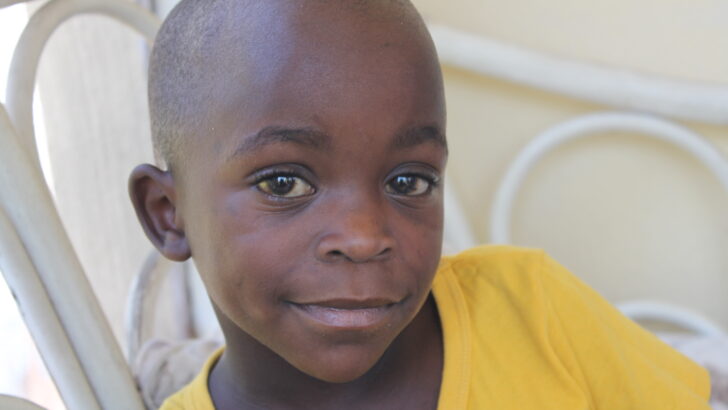Spring Legacy supplement 2024
Spreading Hope with a Final Gift
From Zimbabwe to Colombia, Irish missionaries have been supporting the furthest behind, helping vulnerable and marginalised communities “not only to survive, but to strive”, while also helping communities to develop local leadership.These missionaries become “rooted in the places they serve. Relationships grow from the long-term commitment to them that missionaries demonstrate. Trust then becomes the cornerstone for effective long-term development”, according to Jennifer Donovan of Misean Cara.
Established in 2004, Misean Cara is an Irish faith-based organisation supporting the overseas development work of missionaries. Collectively, Misean Cara’s 77 members work in over 50 countries and are part of a much bigger global missionary network that extends across the world with an extensive reach in Africa, Asia and Latin America.
Misean Cara is committed to ‘promoting the dignity and wellbeing of those furthest behind and aiding their access to essential resources and basic rights’”
Misean Cara’s missionary member organisations often work in remote and vulnerable communities, (helping with housing, health centres, schools and human rights). They serve the local people of the area and then they become part of it. An important goal is to develop self-sufficiency in communities and local leadership of projects. The idea is that, long-term, the missionaries won’t have to do this kind of job. They come to an area that is left behind. They work on that community so that the project becomes sustainable. This way, the missionaries can move to another area of need and that community can still work themselves. They work with and for everyone, on critical issues such as housing, education, climate change resilience and advocating for human rights.
In brief, Misean Cara is committed to “promoting the dignity and wellbeing of those furthest behind and aiding their access to essential resources and basic rights. To ensure that the support we give members has the most impact, our efforts are focused on five key areas: Climate-resilient livelihoods, education, health, emergency assistance and human rights”.
Calm
“The work that the missionaries do is incredible. We work with over 1.7 million people every year, to help to improve their lives. A lot of missionaries don’t even take a salary. I guess the approach itself is to enrich the poor”, Jennifer Donovan, Donor engagement manager shared with this newspaper, “rather than to help eradicate poverty, to help to improve medication and education, because this is key to help people to get out of poverty. The access to clean water. When unexpected disasters or situations happen, missionaries are already there to lend support.”
The incubator where Calm was for the first two months of her life was there thanks to the funding of Misean Cara”
Last year Jennifer Donovan visited Zimbabwe, “I had the pleasure to meet this beautiful girl by the name of ‘Calm’ and her mother, Joyce Mudziumu. Joyce was 7 months pregnant when her baby daughter was born. She wanted to have a boy, since she already had two girls, which is a big pressure in her country”, Jennifer continued, “She believes that the stress that she was going through because of this was what led her to go into early labor. When the contractions started, she was rushed to the hospital. Upon arrival she was already 4cm dilatated, and the baby was born shortly afterwards. The incubator where Calm was for the first two months of her life was there thanks to the funding of Misean Cara. This incubator was part of a bigger scale funding. The first few weeks were dramatic, and Joyce couldn’t produce milk because of the stress. After two months of being in hospital, she did not need the incubator anymore. They stayed in the hospital for a few more months just to ensure that the child was okay.” Calm now goes to school, and she is so intelligent. Calm’s mother is still in touch with the Sisters running the hospital, the Little Company of Mary.And now that she is aware of how Misean Cara helped her in her first months in this world she is grateful for the incubator.
Security
Jennifer was also in Colombia, and visited a project in a very poor town that was set up by a nun who died recently but she left a legacy behind. This nun was there for 40 years. “She was helping women who had been affected by domestic violence and offering a service for the care of the elderly”, Jennifer tells this paper, “What started as a small project is still helping. One of the women I spoke with, three of her children have been killed by gangs. But one of her sons has got a scholarship and now he is working on this project as a social worker, rebuilding human dignity. He is part of the community”. Jennifer points out that people feel safer once the missionaries are there. “What missionaries do so well is building the dialogue with the community, becoming part of it. They are there for the long run. It becomes their ‘home’. They ensure that they have people from different fields so they can help in different areas”.
Leaving a will is our last opportunity to ensure that the people we love are looked after but it’s also a chance for our beliefs and values to live on”
Why include Misean Cara on your will?
Leaving a will is our last opportunity to ensure that the people we love are looked after but it’s also a chance for our beliefs and values to live on. To leave a life-changing gift to Misean Cara is an amazing act of kindness, that will ensure the work of missionaries lives on beyond our lifetime, giving more children, like Calm, the opportunity to not only survive, but to strive.
In Jennifer’s words, “I guess for myself, I haven’t worked in an international development sector before, so this is completely new to me. Last year, when I had the privilege of visiting Zimbabwe to look at some of our member’s projects, I happened to visit the work of one of our congregations. What amazed me about the work conditions is that they are up at 4 am saying prayers. The missionaries spend their days working across the place and then, in the evening they would gather and pick what they grow in their garden and share it. They were happy people. I was highly humbled because of what I witnessed.
Missionaries work quietly. They are moving and they are still dedicated. It is not the same reading about it as going and seeing there what is happening. Missionaries work so many hours. They live to work on this. It is their life. Their help is done quietly. Even missionaries, they don’t tell their stories. They are very low-key. They don’t have the resources to shout about what they do. They don’t have big advertising campaigns.”


 Renata Milán Morales
Renata Milán Morales Child Calm. T. Chinyama (7 years-old) Missionary member: Little Company of Mary Project: Murambinda Mission Hospital, Buhera, Zimbabwe
Child Calm. T. Chinyama (7 years-old) Missionary member: Little Company of Mary Project: Murambinda Mission Hospital, Buhera, Zimbabwe 